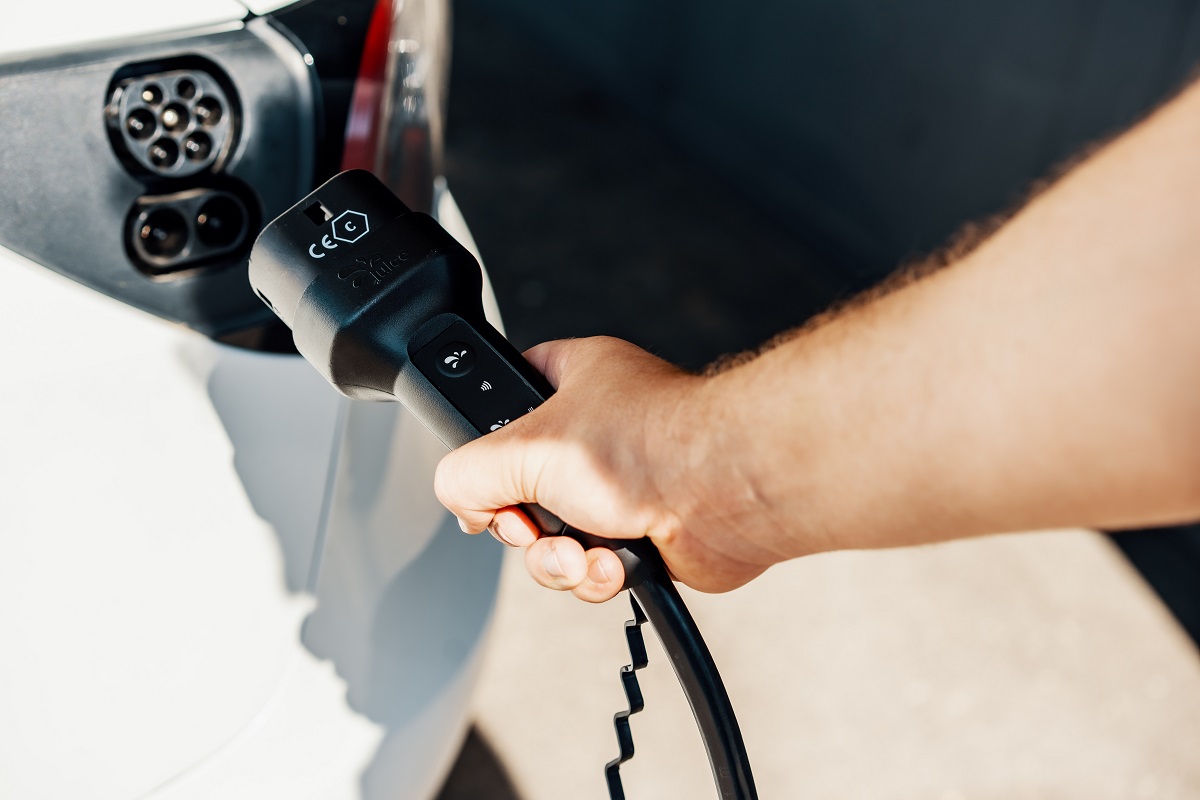Nowadays, e-cars are becoming increasingly important as company cars. Electric cars are not only more environmentally friendly and quieter than conventional vehicles, they also offer attractive tax benefits and lower operating costs. But before you decide on electric cars as company cars, there are a few important aspects to consider. In this article, you will learn more about tax regulations and benefits, charging costs and billing options as well as insurance for e-cars in company use and how you can benefit from the advantages of an e-car as a company car. We provide you with valuable information and practical tips to help you decide whether e-cars are suitable as company cars for your fleet.
Contents
E-car as a company car: take advantage of the many tax benefits
If your company is thinking about purchasing electric cars as company cars for your fleet, everyone involved can benefit from a number of tax advantages. Politicians have recognized that promoting electromobility can make an important contribution to reducing emissions and are rewarding companies that switch to e-cars as company cars. However, it is important to note that tax regulations and benefits can change from year to year. It is best to take advantage of the current subsidies while they are available.
Reduced percentage for private use
One of the most attractive tax benefits is the reduced percentage for private use. Only 0.25 to 0.5 percent of the gross list price of the electric vehicle is taxed monthly as a non-cash benefit. Compared to conventional combustion engines, where the taxable value is usually 1 percent, this can lead to considerable savings every year.
Taxation per kilometer
In addition to paying tax on the non-cash benefit, employees must also pay tax on the journey to work if they use the company car for this purpose on more than 47 days a year. This mileage tax amounts to 0.03 percent of the gross list price per kilometer for the one-way trip. For electric vehicles and hybrids, you only have to pay tax on a quarter of the assessment basis.
Special depreciation
In addition, there are further tax incentives that apply specifically to electric cars. For example, the costs of buying or leasing an electric vehicle can be fully deducted as business expenses. The charging infrastructure and the installation of charging stations can also be claimed for tax purposes. Companies have the opportunity to write off the purchase costs of electric cars more quickly and thus reduce their tax burden.
With an electric car as a company car, you can not only make a contribution to environmental protection, but also benefit from attractive tax advantages. Take advantage of these benefits and drive into the future not only emission-free, but also tax-optimized with an electric car.
E-car as a company car: cash benefit for private use
Anyone who also uses a company car for private journeys must pay tax on the non-cash benefit of private use. Employees. who drive an electric car as a company car currently benefit from significantly lower taxation, which quickly makes itself felt in the wallet.
While the private use of a conventional company car is charged at 1 percent of the gross list price per month, the flat-rate tax for purely electric cars with a gross list price of up to 60,000 euros is just 0.25 percent per month. For electric vehicles with a gross list price of over 60,000 euros, the rate increases to 0.5 percent. This special taxation is expected to apply until the end of 2030 (as of 2023).
For plug-in hybrids, the tax office assesses a non-cash benefit of 0.5 percent of the gross list price. However, there is one important condition: this regulation only applies if the vehicle has a purely electric minimum range of 60 kilometers or emits a maximum of 50 grams of CO₂ emissions per kilometer according to WLTP.
Calculation example for the monthly taxable benefit of use:
Drive type
Combustion engine
Electric
Plug-in hybrid
Gross list price
EUR 50,000
EUR 50,000
EUR 50,000
Utilization advantage
x 1 % = 500 EURO
x 0.25 % = EUR 125
x 0.5 % = 250 EURO
Alternatively, employees can also opt to keep a logbook. Every journey must be documented in detail. Advantage: Only the kilometers actually driven have to be taxed. Whether a logbook is worthwhile depends on how much the vehicle is used privately. If only a few private journeys are made, a logbook is a sensible option for saving tax.

Charging an electric car as a company car: Options and billing
If you use an e-car as a company car, it is important to bill the charging costs correctly, fairly and transparently. There are various options for this. Find out more about the various billing methods, important aspects of cost allocation and special tax features.
Option 1: Electric car charging on the company premises
Companies that provide e-vehicles as company cars often also install corresponding charging stations on the company premises. KfW grants companies a subsidy for the purchase and installation of charging stations.
Employees can conveniently charge their vehicles during working hours. It is up to the employer whether the charging stations are provided free of charge, a reduced price is charged or the entire charging costs are invoiced. If the employer offers recharging free of charge, this is not considered a non-cash benefit and must be paid for by the employees in accordance with § 3 No. 46 EStG are not taxed. As of 2023, this tax exemption still applies until 2030. However, if the employer does not cover the charging costs, this reduces the non-cash benefit in the taxation of the company car.
Option 2: Flat-rate billing of charging costs
If the employee charges their e-car at home, the expenses can be claimed as a lump sum. The amount of the flat rate depends on whether the business e-vehicle is charged exclusively at home or whether the employer also offers charging facilities.
If no charging stations are available at the workplace, the flat rate applies:
- EUR 70 for purely electric company cars
- EUR 35 for hybrid vehicles
If charging facilities are available at the workplace, the flat rate applies:
- EUR 30 for purely electric company cars
- EUR 15 for hybrid vehicles
Option 3: Exact billing of the charging current via wallbox
Instead of flat-rate billing, exact billing per kWh is also possible. Employees can install a wallbox with a separate electricity meter in their private home, which can only be used to charge the company car. In general, the employer is not obliged to provide this charging facility for private households.
A second option is to install a calibrated intermediate meter between the main meter and the wallbox. In this case, only the electric company car may be charged and not a private car. If you want to charge several e-vehicles at home, you can choose a wallbox with access control. This allows different charging processes to be assigned to the respective car. Alternatively, the employer can give away or lend out a wallbox. In the case of a gift, 25 percent of the non-cash benefit must be declared for tax purposes. The loan of a charging station, on the other hand, is tax-free in accordance with Section 3 No. 46 EStG.
E-car as a company car: pay attention to the scope of the insurance offers
An electric vehicle as a company car requires the same insurance as a conventional combustion model. This includes motor vehicle liability insurance as well as partial or fully comprehensive insurance. Many insurance companies now offer special products and rates that take into account and cover the special features of e-vehicles. These include, for example, battery damage due to “deep discharge”, theft of the charging cable or the consequences of operating errors.
Testing electric vehicles?
If you would first like to test whether electric vehicles are suitable for your fleet, then take out a car subscription. This starts from a term of just one month.
The most important facts about e-cars as company cars at a glance
E-cars as company cars offer companies and employees attractive tax benefits and lower operating costs.
There are various billing methods for charging electric cars, from free charging on company premises to flat-rate or exact billing (via wallbox) of the charging current.
Insurance companies offer special products for e-vehicles that provide protection against specific risks such as battery damage or theft of the charging cable. It is worth comparing the various offers here.
Further Fleet Knowledge
If you liked this article and would like to know more about this topic, we recommend these articles.

Car subscription for electric cars: everything you need to know



